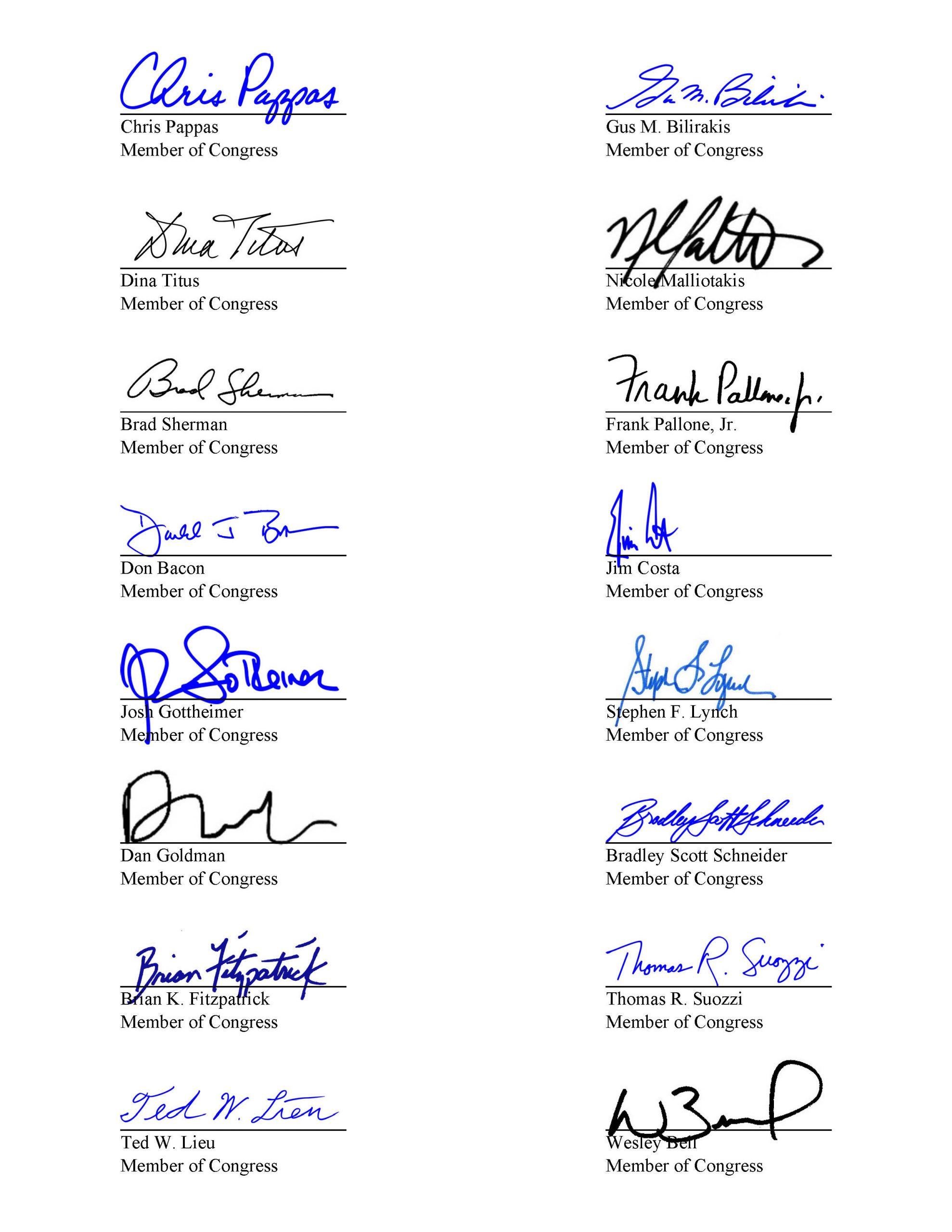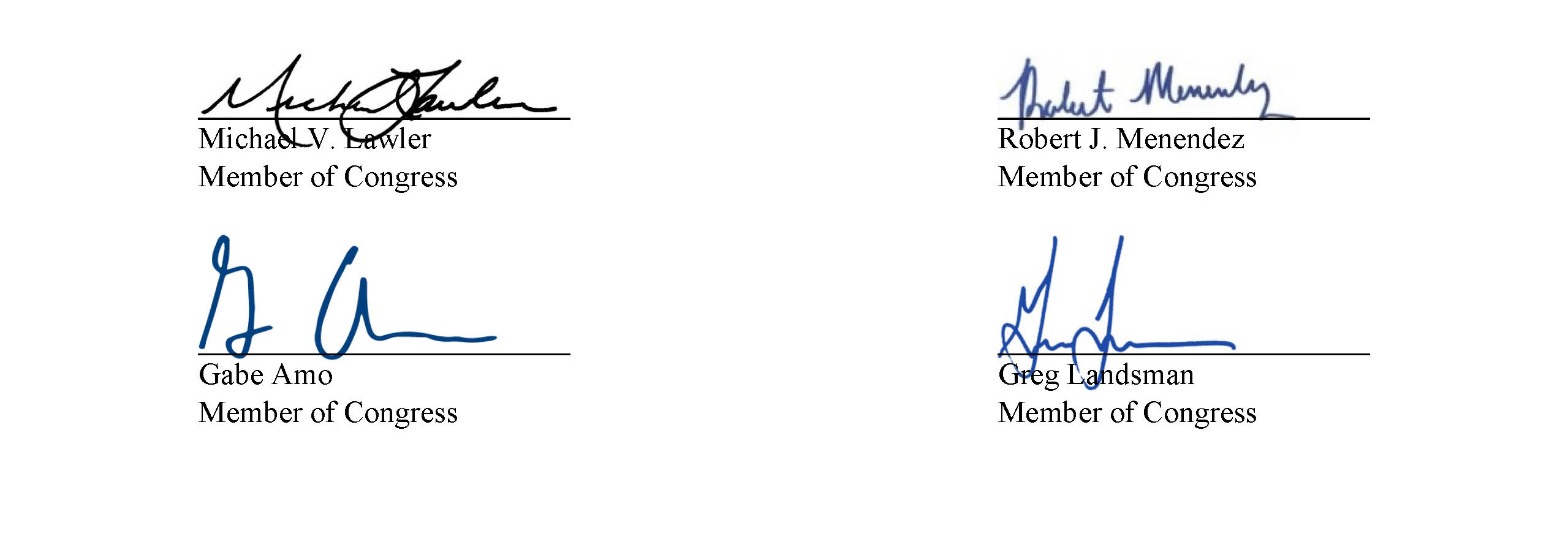Letter to Defense and State Departments on sale of F-35s to Turkey and compliance with Section 1245 of FY2020 NDAA

The Honorable Marco Rubio Secretary
U.S. Department of State 2201 C Street, NW Washington, DC 20520
The Honorable Pete Hegseth Secretary
U.S. Department of Defense 1000 Defense Pentagon
Washington, DC 20301
Dear Secretary Rubio and Secretary Hegseth:
We write to express our strong opposition to the recent announcement that the Administration is in active discussions with Turkey regarding “a major F-16 deal” and “a continuation of the F-35 talks,” which it expects to “conclude positively.” Proceeding with such a sale without fulfilling the statutory certification requirements would violate U.S. law, jeopardize national security, and strain relations with key allies.
The security risks of Turkey’s acquisition and continued possession of the Russian S-400 system are well known. The S-400 poses a direct threat to U.S. military aircraft, including both the F-16 and F-35, by enabling Russian intelligence to gain insight into sensitive U.S. military technology if operated alongside these platforms. These risks led to Turkey’s removal from the F-35 program and sanctions under the Countering America’s Adversaries Through Sanctions Act (CAATSA).
In addition to CAATSA, Congress enacted Section 1245 of the Fiscal Year 2020 National Defense Authorization Act (P.L. 116–92), which imposes specific legal restrictions on any transfer of F-35 aircraft to Turkey. Under this law, the Secretary of Defense and Secretary of State may only waive this prohibition if they submit written certification to Congress, at least 90 days in advance, stating that Turkey no longer possesses the S-400 system or related personnel and equipment; has credibly committed not to acquire such systems in the future; and has not, since July 2019, accepted other Russian defense systems that could compromise the F-35’s capabilities.
Unlike CAATSA’s discretionary waiver authority, the conditions in Section 1245 are mandatory. The State Department recently affirmed that the U.S. position on Turkey’s S-400s “has not changed” and that the Administration “is fully committed to…complying with U.S. law.” However, no such certification has been provided to Congress, nor has Turkey taken the steps necessary to qualify for one. Any sale or transfer of F-35 aircraft or related systems in the absence of this certification would therefore constitute a clear violation of U.S. law. Furthermore, any attempt to circumvent these requirements, for example, by transferring the aircraft to a non-sanctioned Turkish entity rather than the sanctioned Presidency of Defense Industries, would blatantly defy congressional intent.
Such a move would also send the wrong message to allies and adversaries. Key U.S. partners in the Eastern Mediterranean, such as Greece, Cyprus, and Israel, have consistently aligned with and supported U.S. security interests. Greece plays a central role in Operation Prosperity Guardian, the U.S.-led mission to counter Houthi threats in the Red Sea. Cyprus hosts the CYCLOPS training facility supporting counterterrorism and cybersecurity efforts. Israel recently crippled Iran’s nuclear weapons program. In contrast, Turkey has repeatedly violated Greece’s sovereignty, recently threatened Cyprus for purchasing air defense systems, and openly threatened to invade Israel last year.
Secretary Rubio, we applaud your past efforts to address Turkey’s destabilizing actions in the Eastern Mediterranean. Your leadership on the Eastern Mediterranean Security and Energy Partnership Act of 2019 and your consistent attention to strengthening ties with Greece, Cyprus, and Israel have played an important role in reinforcing U.S. partnerships and encouraging regional stability. Rewarding Ankara with access to advanced U.S. fighter systems despite this behavior would betray these partnerships and only embolden Turkey to intensify its aggression in the region, jeopardizing the regional stability we have all worked towards.
Congress has consistently upheld bipartisan restrictions on Turkey’s access to the F-35. Any move to reverse this policy without first securing the statutorily required certification would be a clear violation of U.S. law, undermine Congressional authority, and signal to others that U.S. law and strategic principles can be disregarded.
Accordingly, we strongly urge the Administration to respect and uphold U.S. law and request responses to the following questions by Wednesday, October 1:
1. Has the Administration received credible assurances from Turkey regarding the full removal of the S-400 system and compliance with Section 1245?
2. Does the Administration intend to submit a certification under Section 1245, and if so, what factual basis would support such a submission?
3. Can the Administration confirm that it will not proceed with any F-35-related sale, transfer, or engagement with Turkey unless and until the required certification is provided to Congress?
Thank you for your attention to this matter. We look forward to your response.
Sincerely,


